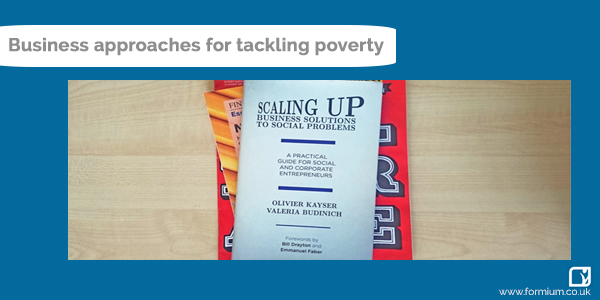The authors suggest that few of the most sustainable and scalable solutions to poverty and deprivation are those based on business – instead of charitable – methods. This chimes with Melinda Gates’ TED talk about adaptable strategies from Coca Cola that could make non-profit organisations more effective.
The practical guide, Scaling Up includes a wide variety of case studies of both the families this kind of approach has helped, and the organisations and social entrepreneurs who have successfully applied it. The book comes across as an extremely well researched while written with the practitioner in mind. Examples from around the world including India, Latin America and Africa range from the more familiar cases of microfinance and housing to community savings and utilities.
The authors recommend a range of strategic and market-driven approaches which can help people at the bottom of the economic pyramid, effectively challenging many assumption of the traditional charitable / donor-reliant approach to NGO-led development. The opportunity to achieve scale is explored both as the traditional scaling of the organisation itself, and as increasing its influence on the ecosystem.
The contents are practical, addressing core management problems just like finance and marketing in a new context. The book is very well structured, the only tougher aspect to its presentation is the excessive amount usage of acronyms, which grates in spite of a glossary at the front of the book.
Reading the book is more than likely to be of instant benefit to managers already working in social enterprises or the third sector, but Scaling Up is a remarkable read for any leader curious about the economics of social justice.
The book is available on amazon.co.uk and amazon.com.





